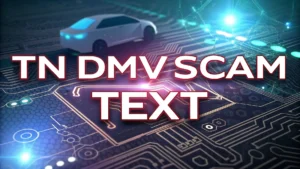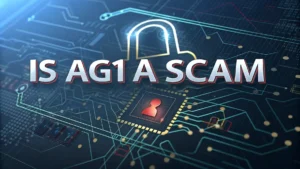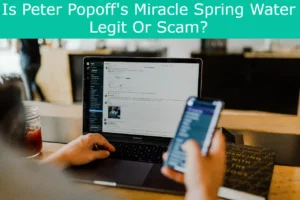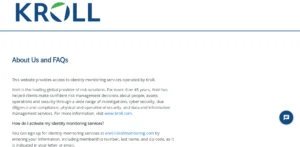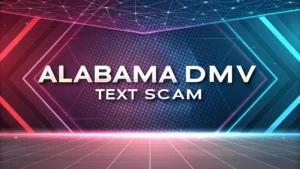Texas drivers are facing a growing threat from sophisticated scam operations that prey on unsuspecting vehicle owners through fake DMV notices.
These fraudulent communications arrive via mail, text messages, and phone calls, designed to trick you into paying money or sharing personal information.
The scams have become so convincing that even experienced consumers fall victim to these elaborate schemes. Understanding how these scams work is your first line of defense against becoming the next target.
Key Takeaways
- Official Texas DMV never sends unsolicited text messages asking for money or threatening license suspension
- Scammers use authentic-looking letterheads and fake company names like “Vehicle Services Division” to appear legitimate
- These scams target personal information including Social Security numbers, credit card details, and banking information
- The real Texas DMV only communicates through official .gov websites and verified phone numbers listed on their website
- Report suspicious communications immediately to the Texas Attorney General’s office and Federal Trade Commission
Understanding the Texas DMV Final Notice Scam Operation
The Texas DMV final notice scam operates through multiple channels to maximize its reach and effectiveness. Scammers create fake notices that appear to come from official state agencies, complete with professional formatting and official-looking seals. These notices typically claim your vehicle registration is expired, your license is about to be suspended, or you owe outstanding fees for various services.
The criminals behind these scams invest significant resources in making their communications look authentic. They use high-quality printing, official government terminology, and even include partial information about your vehicle that they’ve obtained from public records. This attention to detail makes the scam particularly dangerous because it creates an false sense of legitimacy.
The scam operates on the principle of urgency and fear. The fake notices always include threatening language about immediate consequences if you don’t act quickly. They may threaten license suspension, vehicle impoundment, or legal action if you don’t pay immediately or provide requested information. This psychological pressure is designed to prevent you from taking time to verify the authenticity of the communication.
Modern scammers also employ multi-channel approaches, combining mail, text messages, and phone calls to create a coordinated attack. You might receive a letter followed by a text message and then a phone call, all reinforcing the same false narrative. This repetition is designed to wear down your resistance and make the scam seem more credible.
Common Types of Fake DMV Notices Targeting Texas Residents
Vehicle Services Division letters represent one of the most prevalent scam types affecting Texas drivers. These letters arrive in official-looking envelopes and claim to be from a government division responsible for vehicle services. The letters typically state that your vehicle service coverage is about to expire and offer extended warranty services at discounted rates.
Registration renewal scams target drivers by claiming their vehicle registration has expired or is about to expire. These fake notices demand immediate payment to avoid penalties or license suspension. The scammers often include correct vehicle information obtained from public records, making the letters appear legitimate to unsuspecting recipients.
Outstanding toll fee notices have become increasingly common, especially targeting users of toll roads in Texas. These fake notices claim you owe money for unpaid tolls and threaten legal action if payment isn’t made immediately. The scammers create fake websites that mimic legitimate toll collection agencies to collect payment information.
License suspension threats arrive via text message or mail, claiming your driving privileges will be suspended unless you take immediate action. These messages often include links to fake websites designed to steal your personal information and payment details. The urgency of the threat is designed to prevent you from verifying the legitimacy of the communication.
Red Flags That Reveal a Fake DMV Communication
Requests for personal information serve as the most obvious warning sign of a scam. Legitimate DMV communications never ask for Social Security numbers, credit card information, or banking details through mail, text, or unsolicited phone calls. Any communication requesting this sensitive information should be treated as suspicious immediately.
Urgent payment demands represent another clear indicator of fraudulent activity. Real DMV notices provide reasonable timeframes for addressing any issues and include multiple payment options through official channels. Scam notices create artificial urgency by threatening immediate consequences for non-payment.
Poor grammar and spelling errors often reveal the true nature of fraudulent communications. While scammers have improved their writing quality, many fake notices still contain obvious mistakes that wouldn’t appear in official government communications. Professional government agencies employ qualified staff and proofreading processes that eliminate such errors.
Generic addressing and vague vehicle information frequently appear in scam letters. While scammers may include some accurate information obtained from public records, they often lack specific details that would appear in legitimate DMV communications. Real notices include precise vehicle identification numbers, specific license plate numbers, and detailed account information.
How Scammers Obtain Your Personal Vehicle Information
Public records databases provide scammers with a wealth of information about vehicle owners and their registrations. Many states make certain vehicle registration information publicly available, allowing criminals to access names, addresses, and basic vehicle details. This information helps them create convincing fake notices that include accurate personal details.
Data breaches at various organizations have exposed millions of vehicle records over the years. When companies, government agencies, or service providers experience security breaches, criminals gain access to comprehensive databases containing personal and vehicle information. This stolen data is then sold on dark web marketplaces to scammers.
Social media mining allows scammers to gather additional personal information to make their scams more convincing. People often share photos of their vehicles, mention car troubles, or discuss DMV visits on social platforms. Scammers compile this information to create targeted campaigns that reference specific details about your vehicle or recent experiences.
Marketing databases from legitimate automotive companies sometimes fall into criminal hands through various means. These databases contain detailed information about vehicle owners, purchase history, and service records. Scammers use this information to create highly targeted campaigns that reference specific vehicle models, purchase dates, or service history.
The Psychology Behind DMV Scam Success
Authority bias plays a crucial role in the success of DMV scams. People naturally tend to comply with requests from perceived authority figures, and government agencies represent ultimate authority in many people’s minds. Scammers exploit this psychological tendency by creating communications that appear to come from official government sources.
Fear of consequences drives many victims to act without proper verification. The threat of license suspension, vehicle impoundment, or legal action creates emotional stress that impairs judgment. Scammers deliberately design their messages to trigger these fear responses and prevent rational analysis of the situation.
Time pressure tactics prevent victims from taking time to verify the authenticity of communications. By creating artificial deadlines and threatening immediate consequences, scammers force people to make quick decisions without proper research. This urgency prevents victims from contacting the real DMV or consulting with family members who might recognize the scam.
Social proof manipulation occurs when scammers reference other people who have allegedly faced similar consequences. They may claim that many drivers have already lost their licenses or faced penalties for similar issues. This false social proof makes the threats seem more credible and increases compliance rates.
Step-by-Step Guide to Verify DMV Communications
Contact the official Texas DMV directly using phone numbers and websites listed on legitimate government resources. Never use contact information provided in suspicious communications, as scammers often include fake phone numbers that connect to their operations. The official Texas DMV website is TxDMV.gov, and all legitimate communications will reference this domain.
Check your actual DMV account online by logging into the official Texas DMV website using your established credentials. Your online account will show the true status of your registration, any outstanding fees, and the actual expiration dates for your documents. This official record will contradict any false claims made in scam communications.
Compare the communication format with previous legitimate DMV notices you’ve received. Real DMV communications follow consistent formatting, use official letterheads, and include specific reference numbers that can be verified through official channels. Fake notices often lack these consistent elements or include information that doesn’t match official formats.
Verify sender information by checking the return address, phone numbers, and email addresses against official DMV contact information. Legitimate communications will always include verifiable contact information that matches official government records. Scammers often use addresses, phone numbers, or email domains that don’t correspond to real government agencies.
What to Do If You Receive a Suspicious DMV Notice
Do not respond immediately to any communication that demands urgent action or payment. Take time to verify the authenticity of the notice through official channels before taking any action. Scammers rely on immediate responses to prevent verification, so slowing down is your best defense against falling victim to their schemes.
Save all documentation related to the suspicious communication, including envelopes, letters, text message screenshots, and any phone call details. This documentation will be valuable for reporting the scam to authorities and may help prevent others from becoming victims. Make sure to preserve the evidence exactly as you received it.
Contact the real Texas DMV using official contact information to verify whether they sent the communication. The DMV can quickly confirm whether any notices or fees are legitimate and provide guidance on proper procedures for addressing any actual issues. Always use contact information from official government websites rather than information provided in suspicious communications.
Report the scam to appropriate authorities, including the Texas Attorney General’s office, the Federal Trade Commission, and local law enforcement. Reporting helps authorities track scam patterns, identify criminal operations, and protect other potential victims. Your report may be the key piece of information needed to shut down a scam operation.
Protecting Your Personal Information from DMV Scammers
Never provide personal information in response to unsolicited communications, regardless of how official they appear. Legitimate government agencies already have your information on file and won’t ask you to provide it again through insecure channels. Social Security numbers, credit card information, and banking details should never be shared through mail, text, or phone unless you initiated the contact.
Use secure communication channels when you need to contact the DMV about legitimate business. Always use official phone numbers and websites listed on government resources, and avoid clicking links in emails or text messages. When in doubt, type the official website address directly into your browser rather than following provided links.
Monitor your credit reports regularly for signs of identity theft or unauthorized account activity. Scammers who obtain your personal information may use it for various fraudulent activities beyond the initial scam. Free credit monitoring services can alert you to suspicious activity and help you respond quickly to potential identity theft.
Implement identity protection measures such as credit freezes, fraud alerts, and identity monitoring services. These tools can prevent criminals from opening new accounts in your name even if they obtain your personal information. Consider these protective measures as insurance against the growing threat of identity theft through various scam operations.
Legal Consequences for DMV Scam Perpetrators
Federal charges await scammers who conduct DMV fraud operations across state lines or use federal mail systems. The Federal Trade Commission and FBI actively investigate these crimes, which can result in significant prison sentences and substantial fines. Recent enforcement actions have resulted in multimillion-dollar judgments against scam operations.
State-level prosecution occurs when scammers target residents within specific states like Texas. State attorneys general offices have dedicated fraud units that investigate and prosecute these crimes. Texas has particularly strong consumer protection laws that provide severe penalties for those who defraud residents through fake government communications.
Civil liability exposes scammers to lawsuits from victims who have suffered financial losses. Victims can pursue compensation for direct financial losses, identity theft costs, and emotional distress through civil court actions. Class action lawsuits have been successful in recovering millions of dollars for scam victims.
Asset forfeiture allows authorities to seize money and property obtained through scam operations. When law enforcement agencies successfully prosecute DMV scam operators, they can recover assets that may be distributed to victims as restitution. This financial consequence serves as a strong deterrent to potential scammers.
How to Report DMV Scams to Texas Authorities
Texas Attorney General’s Office maintains a dedicated fraud reporting system for residents who encounter scam operations. Their consumer protection division investigates these crimes and coordinates with federal authorities when necessary. You can file reports online through their official website or by calling their fraud hotline.
Federal Trade Commission accepts reports of scam activities that cross state lines or involve federal crimes. Their online reporting system at ReportFraud.ftc.gov allows you to provide detailed information about scam communications and helps federal authorities track criminal patterns. The FTC uses these reports to identify and shut down large-scale scam operations.
Local law enforcement should be contacted when you’ve suffered financial losses or believe you’ve been targeted by criminal activity. Police reports create official documentation of the crime and may be necessary for identity theft protection or insurance claims. Local authorities can also coordinate with state and federal agencies on larger investigations.
Better Business Bureau maintains a scam tracking system that helps identify patterns and warn other consumers about fraudulent operations. Their ScamTracker database allows you to report suspicious activities and search for information about companies or communications you’ve received. This resource helps create community awareness about current scam trends.
Frequently Asked Questions About Texas DMV Scams
Does the Texas DMV send text messages about unpaid fees?
No, the official Texas DMV does not send text messages requesting payment or threatening license suspension.
How can I verify if a DMV notice is legitimate?
Contact the Texas DMV directly using official phone numbers from TxDMV.gov to verify any communications you receive.
What should I do if I already responded to a scam notice?
Contact your bank immediately, monitor your credit reports, and report the incident to authorities.
Can scammers really get my vehicle information?
Yes, scammers obtain vehicle information through public records, data breaches, and marketing databases.
Are phone calls from the DMV always legitimate?
No, scammers often make phone calls claiming to represent the DMV. Always verify by calling official numbers.
What happens if I click a link in a fake DMV text?
Links may download malware or take you to fake websites designed to steal your information.
How much money do people lose to DMV scams?
Individual losses vary widely, but Americans lose billions annually to similar fraud schemes.
Can I get my money back if I fall victim to a scam?
Recovery depends on how quickly you report it and whether authorities can trace the criminals.



